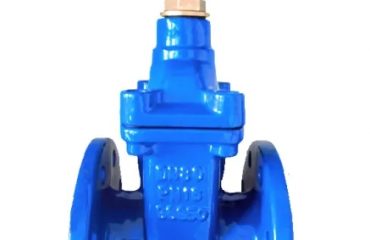
Introduction
Steel pipes are an essential component in modern infrastructure and industrial applications. Their versatility, durability, and strength make them indispensable in a wide range of sectors. This paper aims to explore the diverse uses of steel pipes across different industries.
Construction Industry
Structural Support
In the construction of buildings and bridges, steel pipes play a crucial role in providing structural support. Hollow steel pipes are often used as columns and beams. Their high strength – to – weight ratio allows for the creation of large – span structures while minimizing the overall weight of the construction. For example, in high – rise buildings, steel pipe columns can efficiently transfer the vertical loads from the upper floors to the foundation, ensuring the stability of the entire structure.
Plumbing and Drainage Systems
Steel pipes are also widely used in plumbing and drainage systems within buildings. They are capable of withstanding high water pressures, making them suitable for both cold and hot water supply lines. In addition, their corrosion – resistance properties (especially when coated) make them a reliable choice for long – term use in transporting water. For industrial buildings with more complex drainage requirements, such as those in chemical plants, steel pipes can handle the transportation of corrosive waste fluids due to their durability and resistance to chemical attacks.
Transportation Industry
Oil and Gas Pipelines
One of the most significant applications of steel pipes is in the transportation of oil and gas. Long – distance pipelines, which can span thousands of kilometers, are made primarily of steel. These pipes are designed to withstand high pressures and harsh environmental conditions. For instance, pipelines in remote areas, like those in the Arctic or deserts, need to be able to endure extreme temperatures, soil movements, and potential mechanical damage. Steel pipes are also used in offshore oil and gas production, where they are used to transport hydrocarbons from the wells to the platforms and then onshore.
Water Transportation
Steel pipes are used in the construction of water transportation systems, such as aqueducts. Aqueducts made of steel pipes can efficiently transport large volumes of water over long distances. They are also used in the intake and discharge systems of power plants and desalination plants. In power plants, steel pipes are used to carry cooling water, which is essential for the proper functioning of the turbines and generators.
Manufacturing Industry
Machinery and Equipment
Steel pipes are used in the manufacturing of various machinery and equipment. For example, in the automotive industry, steel pipes are used in the exhaust systems. The shape and size of the pipes can be customized to meet the specific requirements of different vehicle models. They are also used in the hydraulic systems of heavy machinery, where they need to withstand high pressures during operation. In the food and beverage industry, stainless steel pipes are used in the transportation of liquids, as they are hygienic and resistant to corrosion from food – related substances.
Agricultural Applications
In agriculture, steel pipes are used for irrigation systems. Drip irrigation and sprinkler systems often rely on steel pipes to distribute water evenly across the fields. The durability of steel pipes ensures that they can withstand the rigors of outdoor use, including exposure to sunlight, moisture, and mechanical stress from farming equipment.
Conclusion
Steel pipes have a vast array of applications across multiple industries. Their unique combination of strength, durability, and adaptability makes them an ideal choice for structural support, fluid transportation, and manufacturing purposes. As technology continues to advance, the use of steel pipes is likely to expand further, with the development of new alloys and manufacturing techniques improving their performance and versatility even more. Whether it is in building the tallest skyscrapers, transporting vital resources across the country, or manufacturing essential machinery, steel pipes will remain an integral part of modern society.
 Language
Language Espanol
Espanol English
English Italian
Italian عربى
عربى
 Skype: chinamaker99
Skype: chinamaker99  Tel: 86-316-5120812
Tel: 86-316-5120812 Email:
Email:  Whatsapp:
Whatsapp: 